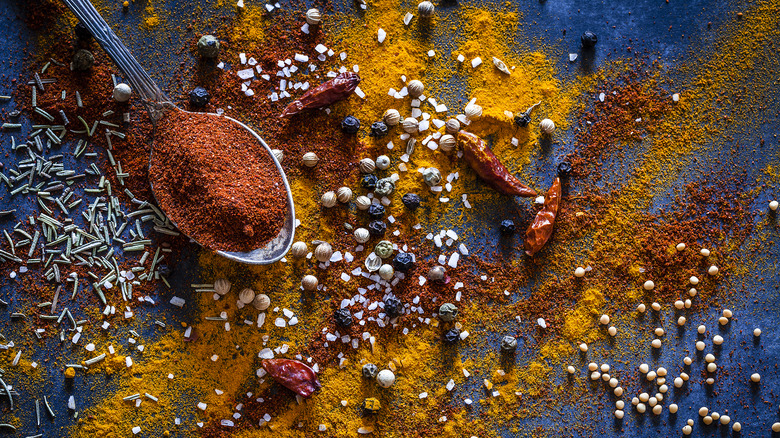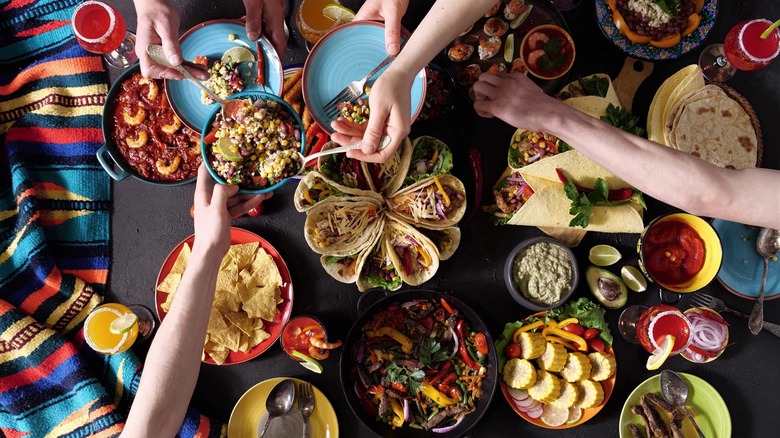Our Enjoyment Of Spicy Food May Have Evolved Out Of Environmental Necessity
There is an interesting correlation between a country's geographical location and the spiciness of its local cuisine. If you look at a map, you'll notice that, in general, the closer a country is to the equator the spicier its food is. For example, countries like India, Thailand, and Mexico have notoriously spicy food, while the cuisine in locations like Germany, Russia, and Finland is much more mild. As it turns out, humans' propensity toward spicy food may be related to why it is so prevalent in these hotter climates.
Capsicums, which refer to the family of peppers, as well as spices like garlic, oregano and cinnamon, have antimicrobial properties. According to evolutionary biologist and professor of neurobiology and behavior at Cornell University, Paul W. Sherman, the theory is that "the ultimate reason for using spices is to kill food-borne bacteria and fungi" (via the Cornell Chronicle). Before the time of refrigeration, food spoilage was a major issue in tropical and hot climates. It's possible that the people in these regions incorporated spice into their recipes because of its ability to keep their food fresh longer and over time, the spicy flavors became a part of their cultures.
Spicy food kept food fresh in hot climates
One can reason that people in colder areas didn't need the antimicrobial powers of spice thanks to the natural refrigeration their environments provided. This trend can still be seen today in larger countries like the United States where Northeastern and Midwestern cuisine that is inspired by English, Irish, and Dutch food typically contain less spice than Southern cuisine like Tex-Mex and Cajun.
It's also possible that bacteria-fighting spices provided health benefits, which gave people even more incentive to include them in their diets. Sherman says that "people who enjoyed food with antibacterial spices were probably healthier, especially in hot climates. They lived longer and left more offspring." They also explain that the enjoyment of spicy foods is partially genetic and due to parents teaching children about the cultural and preservative importance of including spices in recipes.
Today, along with being socially significant in many cultures, spicy food has become a way for culinary thrill-seekers to get their kicks. Many people also still use spices as a holistic way to fight common ailments. So, the next time you whip up some spicy aloo curry, remember that you're engaging in a centuries-long tradition of keeping the bacteria at bay.

